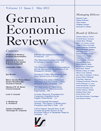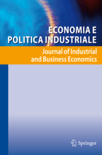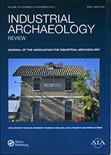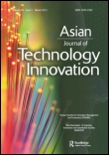
Revista de Historia Industrial
Scope & Guideline
Unraveling the Past, Shaping the Future of Industry
Introduction
Aims and Scopes
- Historical Analysis of Industrial Development:
The journal focuses on the evolution of industrial practices, technologies, and policies in Spain and Southern Europe, providing insights into how historical contexts shape contemporary industrial landscapes. - Economic Policies and Their Impacts:
It examines the role of state policies and institutional frameworks in shaping economic outcomes, with a specific focus on how these policies have influenced industrial growth and labor markets. - Social Dynamics in Economic History:
The journal investigates the interplay between social structures and economic developments, highlighting themes such as labor relations, social capital, and community impacts on industrial growth. - Technological Innovations and Industrialization:
A core focus on the history of technological advancements, this journal analyzes how innovations have transformed industries and influenced economic trajectories over time. - Comparative Studies:
The journal engages in comparative analysis, particularly between Spain and other regions, to understand diverse industrialization patterns and their socio-economic implications.
Trending and Emerging
- Technological and Energy Transitions:
There is an increasing emphasis on the historical analysis of energy transitions, particularly regarding the delayed adoption of renewable energy sources and the implications for industrial practices. - Social Capital and Labor Markets:
Recent studies have begun to explore the intricate relationships between social capital, labor dynamics, and economic performance, indicating a growing interest in the social dimensions of industrial history. - Internationalization of Industries:
The trend towards examining the international strategies of Spanish firms, especially in relation to Eastern markets, highlights a shift towards globalization and its impact on local industries. - Economic Repression and Labor Policies:
Emerging research focuses on the effects of economic repression during historical periods, such as the Franco regime, addressing labor market dynamics and their long-term consequences. - Interdisciplinary Approaches:
A notable trend towards interdisciplinary methodologies, incorporating insights from sociology, political science, and economics, is becoming more prevalent, enriching the analysis of industrial history.
Declining or Waning
- Colonial and Post-Colonial Studies:
Themes related to colonial economic policies and their impacts have decreased in frequency, suggesting a shift away from colonial narratives towards more contemporary industrial issues. - Traditional Industrial Practices:
Research focused on early industrial practices and their historical significance appears to be declining, possibly reflecting a growing interest in modern industrial challenges and innovations. - Local Economic Histories:
While local histories were once a focal point, there is a noticeable reduction in studies that concentrate solely on regional economic histories, with a trend towards broader comparative analyses.
Similar Journals

Studia Historiae Oeconomicae
Connecting Historical Contexts with Contemporary EconomicsStudia Historiae Oeconomicae is a distinguished academic journal specializing in the intersection of history and economics, proudly published by SCIENDO, a respected leader in academic publishing. Since its transition to an Open Access model in 2013, the journal has aimed to democratize access to critical research that explores economic phenomena through historical lenses. This platform facilitates knowledge dissemination, fostering a rich dialogue among researchers, professionals, and students in the field. With a focus on innovative methodologies and interdisciplinary approaches, Studia Historiae Oeconomicae serves as a vital resource for those seeking to understand the intricate relationships between economic trends and historical events. Situated in Warsaw, Poland, this journal not only contributes significantly to the academic landscape but also engages a global readership eager to advance the fields of economic history and related disciplines.

German Economic Review
Advancing Economic Discourse with Insightful ResearchGerman Economic Review is a distinguished academic journal published by WALTER DE GRUYTER GMBH, focusing on diverse aspects of economics and econometrics. With its ISSN 1465-6485 and E-ISSN 1468-0475, the journal serves as a vital platform for disseminating high-quality research from both established scholars and emerging voices in the economic field. Housed in the UK, the journal contributes significantly to the academic community, evidenced by its placement in the Q3 category for Economics and Econometrics in 2023 and its Scopus ranking of #381 out of 716, reflecting its impactful presence in the discipline. German Economic Review does not offer open access options; however, its convergence from 2001 to 2024 indicates a long-standing commitment to advancing economic discourse. This journal is ideal for researchers, professionals, and students eager to engage with contemporary economic theories and applications.

Economics of Transition and Institutional Change
Exploring the nexus of economics and institutional evolution.Economics of Transition and Institutional Change is a dynamic academic journal published by WILEY, dedicated to exploring the intricate relationship between economic transitions and institutional modifications across diverse global contexts. Established in 2019, the journal aims to illuminate the mechanisms through which institutional change influences economic performance, particularly in transitional economies. With its ISSN 2577-6975 and E-ISSN 2577-6983, the journal provides a platform for researchers and economists to disseminate high-quality, peer-reviewed research that reflects contemporary issues in the field. Given its classification in the Q3 and Q2 quartiles for 2023 in both Economics and Econometrics, and broader categories involving Finance, it occupies a vital role within its academic niche, ensuring your work gains the attention it deserves. The journal offers open access options, making valuable research freely available to a wider audience, thereby enhancing its impact. Located in Hoboken, New Jersey, Economics of Transition and Institutional Change invites contributions that investigate theoretical and practical perspectives, ensuring a rich dialogue among scholars, practitioners, and policymakers.

Cliometrica
Unveiling the Past through Econometric AnalysisCliometrica, published by Springer Heidelberg, is a prestigious journal that has made significant contributions to the fields of Economics and Econometrics as well as History. With an impressive 2023 Scopus ranking placing it in the Q2 category for Economics and Econometrics and the Q1 category for History, this journal stands out as an essential resource for researchers, professionals, and students alike. Known for its rigorous scholarly approach, Cliometrica merges quantitative and qualitative methodologies to uncover insights into historical economic analysis, reflecting the interdisciplinary nature of contemporary research. With access strictly through subscription, it continues to uphold high academic standards, making it a vital addition to any academic library. Published in Germany, Cliometrica serves as a key platform for advancing the discussion and understanding of historical econometric techniques, ensuring its relevance and importance in both historical and economic research circles.

Journal of Industrial and Business Economics
Empowering insights for a dynamic economic landscape.Journal of Industrial and Business Economics, published by SPRINGER NATURE, is a premier scholarly journal focused on disseminating cutting-edge research and practical insights within the fields of industrial and business economics. With an impact factor that reflects its importance globally, the journal serves as a vital resource for researchers, professionals, and students, contributing to advancements in knowledge and practice in business management, economics, and econometrics. The journal is recognized in the Q2 and Q1 quartiles across various categories, demonstrating its rigorous peer-review process and relevance, with notable rankings in both the Economics and Business Management categories. Its rich selection of articles drives discussions critical for understanding contemporary economic challenges and business strategies. For those seeking to stay informed in this evolving field, the Journal of Industrial and Business Economics is indispensable, providing a platform for innovative thought and scholarly exchange.

Industrial Archaeology Review
Fostering Interdisciplinary Dialogue on Industrial HeritageIndustrial Archaeology Review, published by Routledge Journals, Taylor & Francis Ltd, is a leading scholarly journal dedicated to the field of industrial archaeology. With its ISSN 0309-0728 and E-ISSN 1745-8196, this journal provides a critical platform for researchers, professionals, and students interested in the exploration of industrial heritage and the social, economic, and environmental implications of past industrial practices. The journal's impact is underscored by its positioning in the Q3 category in both the archaeology arts and humanities and archaeology social sciences quartiles for 2023, reflecting its significance within the academic community. Covering a broad temporal span from 1976 to 2024, Industrial Archaeology Review promotes interdisciplinary dialogue and encourages innovative approaches to the study of industrial heritage. Although not an open-access journal, it continues to contribute valuable insights into the preservation and interpretation of industrial sites, making it an essential resource for any scholar immersed in this fascinating field.

Asian Journal of Technology Innovation
Connecting Research, Technology, and ManagementAsian Journal of Technology Innovation is a reputable peer-reviewed journal published by Routledge Journals, Taylor & Francis Ltd, focusing on the critical intersection of technology innovation, economics, and management. With an ISSN of 1976-1597 and an E-ISSN of 2158-6721, this journal has carved a niche for itself since its inception in 2010, aiming to disseminate high-quality research that informs both academia and industry. Positioned in the second quartile (Q2) for both Economics and Econometrics and Management of Technology and Innovation, according to the latest rankings, it enjoys a solid reputation within the academic community, reflected in its Scopus rankings that place it in the 69th and 60th percentiles respectively. This journal is essential for scholars and practitioners looking to stay at the forefront of technological advancements and their implications for management and policy-making. With a commitment to fostering scholarly dialogue and innovation, the Asian Journal of Technology Innovation serves as a vital resource for those who are passionate about shaping the future of technology and its economic impact.

Economic History of Developing Regions
Advancing Understanding of History's Impact on Economic Development.Economic History of Developing Regions, published by Routledge Journals, Taylor & Francis Ltd, is a distinguished academic journal that focuses on the intersection of economic development and historical analysis in emerging economies. Established in 2010, this journal serves as a vital platform for researchers, professionals, and students interested in understanding the economic dynamics and historical contexts that shape developing regions. With its impressive ranking in the Q1 category in History and Q3 in both Development and Economics, it has established itself as a credible source for innovative research and critical insights. Despite being a non-open access publication, it consistently aims to bridge the gap between historical understanding and economic strategies, making it essential reading for those engaged in the studies of economics, history, and development. Emphasizing rigorous academic standards, the journal highlights quality scholarship that contributes to the discourse on sustainable development and policy frameworks essential for evolving economies.

Prace Komisji Geografii Przemyslu Polskiego Towarzystwa Geograficznego-Studies of the Industrial Geography Commission of the Polish Geographical Society
Navigating the Future of Spatial ManagementPrace Komisji Geografii Przemyslu Polskiego Towarzystwa Geograficznego, also known as Studies of the Industrial Geography Commission of the Polish Geographical Society, is a pivotal open-access journal published by the Pedagogical University of Cracow, specifically by the Institute of Geography's Department of Entrepreneurship and Spatial Management. Since its inception in 2009, this journal has been dedicated to advancing the field of industrial geography, providing a platform for researchers and scholars to publish their findings and share insights related to spatial management and economic geography. With an ISSN of 2080-1653 and an E-ISSN of 2449-903X, the journal is indexed in various academic databases, helping to ensure that its contributions reach a wide audience. The importance of the journal lies in its role in fostering interdisciplinary discussions that address contemporary challenges in industrial geography, making it an indispensable resource for professionals, students, and researchers committed to understanding the complexities of spatial dynamics in industrial contexts.

Midland History
Advancing Scholarly Discourse in Regional HistoryMidland History is a distinguished academic journal, grounded in the rich historical tapestry of the United Kingdom, and published by Routledge Journals, Taylor & Francis Ltd. With an ISSN of 0047-729X and an E-ISSN of 1756-381X, this journal serves as a vital platform for scholarly discourse on various aspects of regional and national history. Although categorized in the Q4 quartile for History in 2023, Midland History is committed to bridging gaps in current historical research and provides a unique opportunity for researchers, professionals, and students to engage with new findings and interpretations. The journal has been published in converged issues spanning from 1971 to 2024, indicating a long-standing commitment to scholarly excellence. Contributions often focus on the social, cultural, and political narratives that shaped the Midlands, making it an important resource for those interested in the intersections of historical practice and contemporary thought. While not currently an open-access journal, Midland History’s contributions are pivotal for fostering a deeper understanding of history within academic circles.